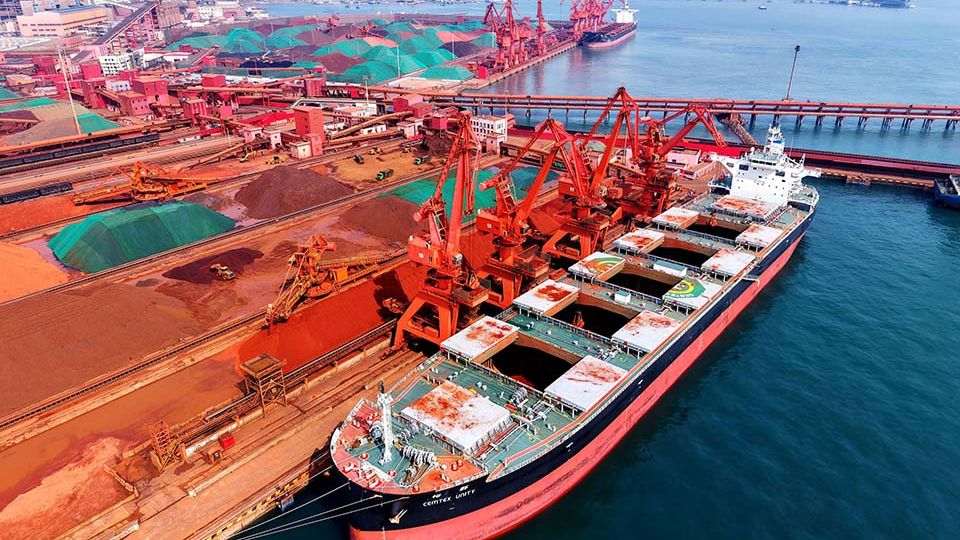April 25, 2025
SYDNEY – Australian Prime Minister Anthony Albanese on April 24 announced a A$1.2 billion (S$1 billion) plan to buy and stockpile some of the country’s vast deposits of critical minerals to try to reduce the global dependence on supplies from China, which dominates the market.
Promising to establish a strategic reserve of 31 critical minerals if he wins an election on May 3, Mr Albanese said the plan would help to safeguard supplies at a time of growing global tensions.
“In a time of global uncertainty, Australia will be stronger and safer by developing our critical national assets to create economic opportunity, but also to build resilience,” he told reporters.
He also signalled that the reserve could be a bargaining chip in negotiations with US President Donald Trump over tariffs. Australia is a close ally of the US but was unable to secure a reprieve from Mr Trump’s steel and aluminium tariffs and a 10 per cent general tariff.
“What we do as friends is be prepared to engage in a constructive way, and that is what I intend to do with the United States,” Mr Albanese said.
Australia has some of the world’s largest deposits of critical minerals, including lithium, cobalt and rare earths, that are used to produce electric vehicle batteries, smartphones, solar panels, wind turbines, weapons and medical devices. Some of the minerals are also essential to the defence and aviation industries.
But the bulk of critical mineral processing occurs in China, which currently produces about 70 per cent of critical minerals and 90 per cent of rare earths. Beijing has at times blocked exports due to geopolitical disputes, including recent restrictions imposed in response to Mr Trump’s tariffs.
Mr Albanese said his ruling Labor Party, if re-elected, will create a critical minerals strategic reserve that will involve buying agreed volumes of critical minerals from commercial projects, or establishing an option to buy them at a given price. In addition, the government will create domestic stockpiles of key minerals.
The reserve, which would become operational in the second half of 2026, will involve 31 critical minerals. Australia will sell some of the minerals in global markets and to key international partners, though the identities of these partners have not yet been confirmed.
The government said in a plan released on April 24 that the reserve will focus on minerals that are “most important for Australia’s national security and the security of our key partners”.
Asked about China’s domination of critical minerals processing, Australian Minister for Resources Madeleine King told Sky News: “Yes, that’s exactly right, and that’s the monopoly of supply chain that we’re trying to break here in Australia.”
Despite Australia’s vast supplies of critical minerals, it has only limited processing capacity. Mr Albanese has contributed A$475 million to the development of a rare earths refinery operated by mining firm Iluka Resources in Western Australia. Australia also produces minerals such as cobalt and nickel.
But firms in Australia and elsewhere have long accused China of using its global dominance of critical minerals supplies to control output and prices to ward off competitors.
An expert on Australia’s critical minerals policies, Dr John Coyne, the director of national security programmes at the Australian Strategic Policy Institute, told The Straits Times that the proposed reserve could help to ease the global dependence on China.
He said such dependence is risky because it enables China to influence prices, and because supplies could suddenly be interrupted due to geopolitical tensions or internal strife in China, or natural disasters.
Describing the reserve as “an excellent first step”, Dr Coyne said its success ultimately depends on whether Australia can find other like-minded partners with greater processing capability and potential. Such partners, he said, could include Japan, South Korea, India, the European Union and the US.
“The stockpile will have no impact if China is still needed to process it,” he said. “To truly lead to the benefits, you need other countries involved.”
Analysts such as Dr Coyne, as well as business groups such as the Chamber of Minerals and Energy of Western Australia, said Labor’s plan to acquire and seek options to buy critical minerals could generate much-needed investment in the sector. Mining firms have often been wary of developing critical minerals projects due to the wild fluctuations in prices.
The head of the Association of Mining and Exploration Companies, Mr Warren Pearce, said in a statement that the plan will help Australia to “leverage our position as a major critical minerals player in the global market”.
“This is a positive step forward that… will provide a major boost for the developing critical minerals industry in Australia,” he said.
“It will provide support to the private sector and assist international investors and partners with the upfront capital costs of new projects.”
The government said it will consult with states and companies to develop the reserve and determine the 31 minerals to be included.
Opposition leader Peter Dutton, who leads the Liberal-National Coalition and trails in opinion polls, did not endorse Labor’s plan but said on April 24 that he is open to developing a reserve if elected, and would work on it with partners such as the US and Japan.
- Jonathan Pearlman writes about Australia and the Pacific for The Straits Times. Based in Sydney, he explains matters on Australia and the Pacific to readers outside the Oceania region.


